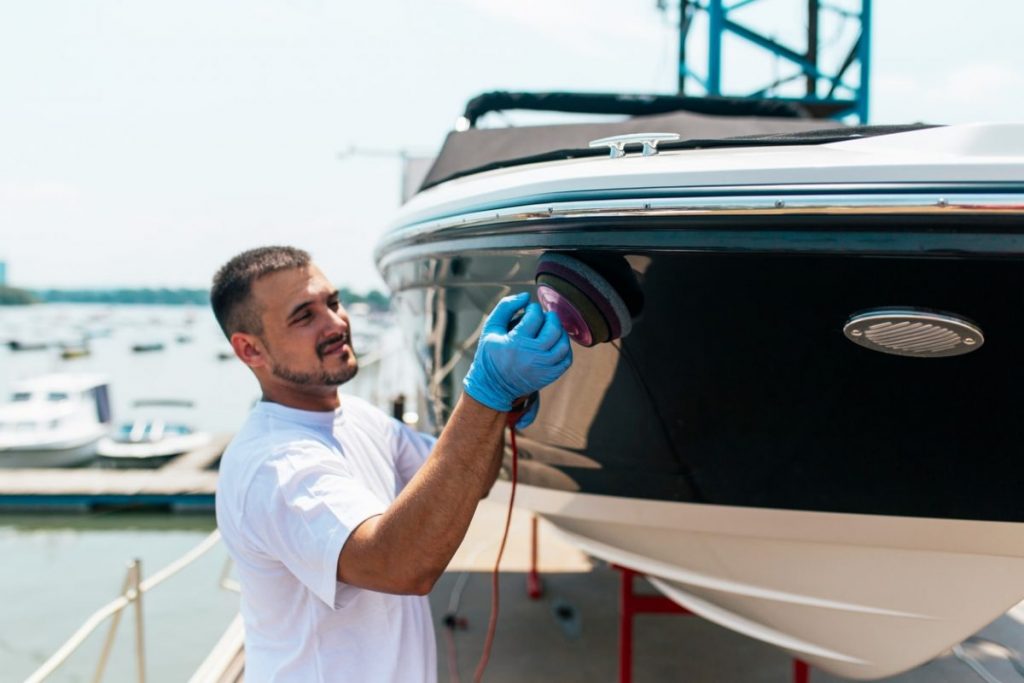All boats require some maintenance to ensure they’re running correctly. Serious reconstruction and renovations should be left to the professionals, but when it comes to the everyday, routine maintenance tasks, most of them are things that you can easily handle yourself with a little bit of learning.
Here are some tasks you should be doing to help prolong the health of your boat and make each outing more enjoyable.
Washing
After every use, wash your boat with clean, fresh water and environmentally friendly soap such as biodegradable detergents, made specifically for boats, to protect the gel coat finish and the environment. Scrub storage compartments with a biodegradable solution, vacuum floors and wipe down everything in the boat.
Clean seats regularly prevent dirt, salt water, mold, and mildew from damaging them over time. Apply a UV inhibitor product to your seats to prevent discoloration or cracking.
Engine
Check that your engine is looking good. You don’t want to see cracked hoses (this calls for immediate replacement as cracked hose could start leaking) or corrosion on fuel lines and clamps. All moving parts should be lubricated and the outboard motor can be bettered secured to the transom by tightening the bolts.
Propeller
Check the propeller nut to ensure it’s still tight, by using a deep socket wrench and , check the propeller for general damage. Small dents in the prop could cause your engine to burn extra fuel. A few times per year, remove the propeller completely to grease it and make sure there is no fishing line or other debris wrapped around it.
Battery
The battery will start to degrade, even if you are not using them. Check your battery at least once a year by using a digital multi-meter to determine how much charge is left. A regular lead-acid battery will typically last 3-5 years. If there is corrosion in the connections, you can clean it with a wire brush.
Pump Maintenance
The bilge pump removes water that builds up within the bilge. Without it, your boat could fill up with water and sink. Unhook the hoses and make sure they are free from any debris that might be clogging it. Have a secondary bilge pump in case the primary pump fails.
Electrical
Electrical lines will wear down over time if not properly cared for.
- Clean off any dirt or debris build-up found on the lines.
- Make sure everything is working correctly.
- Use a digital multi-meter to check the health of the lines.
Oil Change
Change the oil by following these steps:
- Start the engine and warm it up for about 7 to 8 minutes.
- Turn off the engine.
- Place a container under the drain plug area.
- Remove the drain plug, then unloosen the screw above.
- Remove the old oil by letting it sit for about 30 minutes.
- While you are waiting for the oil to drain, change the oil filter.
- Replace the drain plug once all of the oil has emptied out, and tighten the screw above.
- Fill the engine with marine grade oil.
- After every season, flush out the oil during your winterization process.
Along with these regular maintenance steps, make sure to secure boat insurance to protect your investment.
About Mariners Insurance
Mariners General Insurance Group was founded in 1959 to protect boat owners and marine business clients. We are marine insurance experts and insure boats worldwide – in every ocean on the planet. Marine insurance is critical if you own a boat or nautical business. Trust the professionals with all of your Boat Insurance needs – trust Mariners Insurance. Call us at (800) 992-4443 any time you have questions or concerns about insurance for your vessel or marine business.



